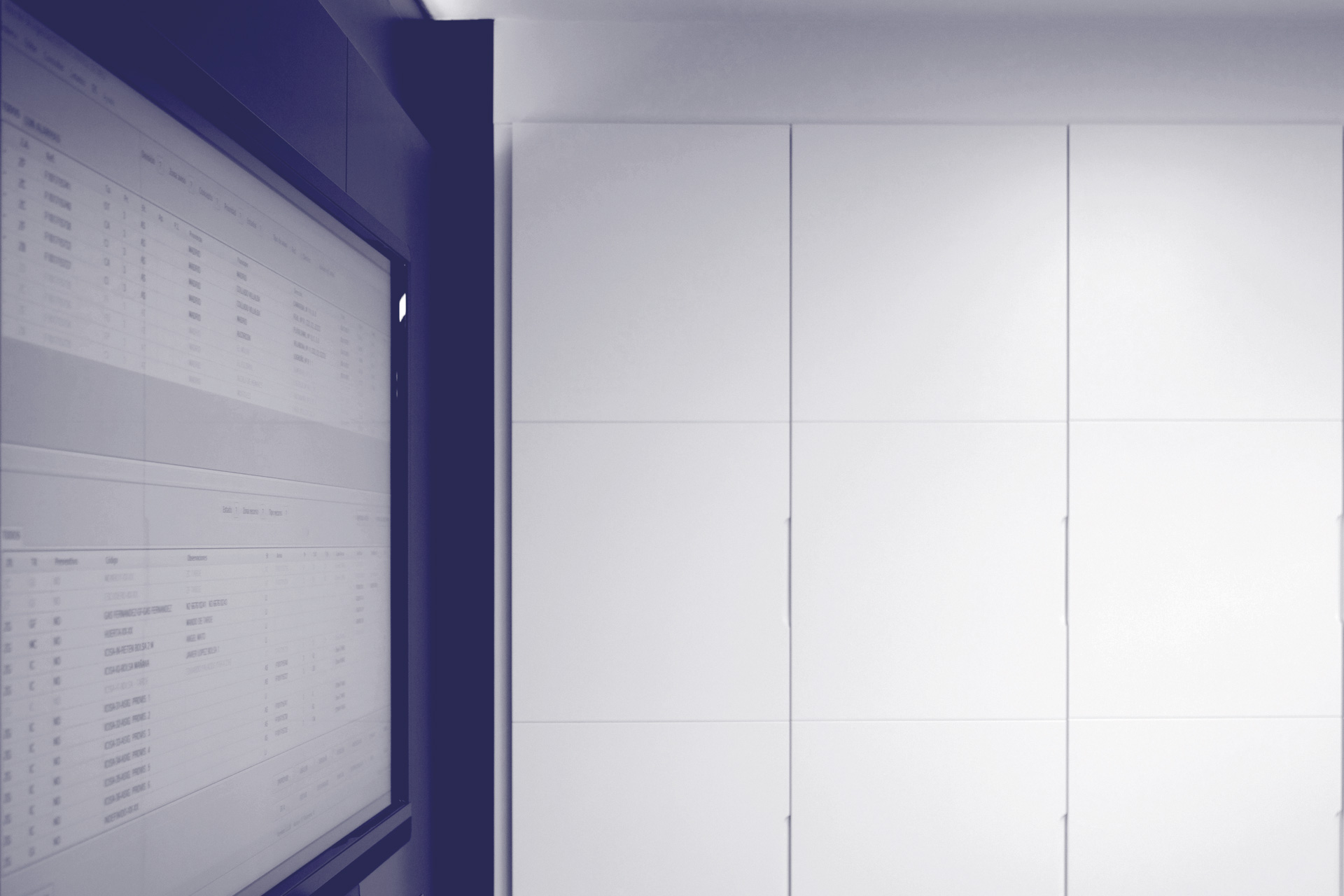3.1 QUALITY POLICY
MRG’s objectives in relation to quality policy have focused on several areas. On the one hand, the incorporation of the more than 500 LPG plants acquired from Repsol has required the company to adapt the systems and to check and control the relevant documentation.
Similarly, new actions have been undertaken to improve the satisfaction rate of our customers and we have improved the existing documentation and the preparation and revision of internal regulations.
The transition project of the quality management system to the requirements of the new revision of ISO 9001:2015 has also been started. The initial works have been based on the planning of the necessary changes that should be implemented during the next financial year for their correct adaptation. These focus on the new requirements regarding the context of the organization, leadership and focus on risks and processes.
Similarly, the first follow-up audit of the quality management system certification was carried out, in accordance with the UNE-EN ISO 9001:2008 standard with Tüv Rheinland. The internal audit of the system has also been carried out to verify compliance with the requirements established by the aforementioned standard.
On the other hand, we have continued with the development of the second phase of the internal regulation project through the adaptation of existing technical regulations or the creation of documents related to channels, claims, periodic inspection, home operations, emergency care, expansion and network operations.
3.2 UTILITY 4.0 PROJECT
Understanding how the gas sector operates can be complex for our customers, for whom it is not easy to differentiate between a distribution company, a trading company or an installer, nor to know what a facility revision or periodic inspection is, etc.
In order to explain to our customers what our activity is and what our obligations are as a distribution company, as well as what are the obligations that our customers have as users, MRG has wanted to take full advantage of new technologies and digital switching services and become an industry 4.0. In this way, and with the priority objective that “the customer should not suffer”, users become customers.
This change of focus has generated a programme of more than 50 initiatives of organization, processes and information systems, and several lines of action have been identified with well-planned projects.
FOCUS ON THE CUSTOMER
All the users connected to our natural gas distribution network are, in turn, customers of a supply company, with which they have the contractual relationship, since it is the marketing company that issues the invoices and proposes commercial offers to them.
Through a third party access contract, MRG provides services to different marketing companies to serve their customers. This implied that for the distribution company, the marketer’s customer was another user who was managed with processes and communications similar to any user of another marketer.
MRG is today a distribution company 4.0. Its commitment to new technologies facilitates a global vision of the habits and needs of natural gas users, who become customers
Determined to move away from with this vision, MRG recognizes that not all customers connected to our distribution network are the same: each has its own habits, needs, schedules or preferences in communication channels. Therefore, the more we know and understand customers, the better we can serve them, offering them an improved and more efficient service.
The natural tendency of the customer is to interact with the marketing company. MRG has access to few “events” in the life of a customer to know them, know what his or her needs are and gather information about consumption habits, etc. This key information regarding the customer is provided by the marketing company and, if the data is not modified by its marketer or by the customer, it becomes outdated over time.
In this sense, we have analysed different cases in which the customer has interacted directly with MRG to resolve the request associated in each case. This analysis has allowed us to identify, in the different processes, the following areas of action:
- Description of «TODAY». Definition of the current situation of the needs of each customer and what service they receive from MRG.
- Customer needs. It establishes what are the current customer’s demands.
- Customer’s dream. It identifies what would be the best service that can be given to our customers.
- Obstacles. We study what stops us in order to give a service with 100% satisfaction.
Knowing our customers has allowed us to identify the characteristics of each one and be able to pay more attention to their needs, customs, what their information requirements are, when and how they need it, when they can assist us, and so on.
In order to serve our customer with a global vision, in any channel and through any interlocutor, it is essential to have information related to all processes, and that this information is centralized and available for MRG and for our extended company (contractors). In this way, many of the difficulties that now exist to communicate or find the customer at home are minimized. By having accurate information about the daily activity of the customer, we can know exactly what days and at what time it is most convenient for us to call on them at home.
We have involved all those who make up the extended company in the redesign and improvement of processes and services in order to meet the commitments made with each customer
EXTENDED COMPANY
At MRG we have subcontracting models for field work. Therefore, a large part of our commitment to the customer is made through our extended company. The challenge for MRG this year has been to involve the extended company in the redesign and improvement of processes, listen to their field feedback, share objectives and design together a service that ensures that the commitment taken on by MRG is reflected in all areas of activity and through the potential interlocutors with the customer.
On the other hand, and taking into account that customers also make use of the official bodies that the Administration places at their disposal, such as the local consumer information offices, when processing a claim, the possibility of proposing working groups with the main official organizations, starting with those that deal with the most complaints regarding customer service, has been raised. In this way, we can resolve customer requests more effectively and provide added value, such as back-office, to these organizations.
3.3 SMART PROJECT
During this financial year, in relation to the use of telemetry meters whose use is mandatory for customers with consumptions over 5 GWh / year, MRG has taken a step beyond what current legislation requires. In order to extend the use of these meters to other customers, we have carried out an in-depth analysis of the possible solutions for both industrial and residential use. The result of this analysis has allowed the launch of the SMART 4K and SMART 1K projects, whose implementation is expected to be completed in the first half of 2018.
SMART 4K has been conceived with the aim of increasing the volume of telemetered gas in our network, from the current 20% to 70% at the end of the project. With this, we seek a greater control of daily consumption, in a way that allows us to eliminate the estimate of consumption in the distribution. We also hope to have a better control of fraud, along with the possibility of offering other services of added value to the customer.
We anticipate that this initiative will have a ROI of 60 months, without taking into account the positive effect it will have on the energy data in the gas balance.
PFor its part, SMART 1K has been designed with the aim of learning more about consumption patterns in our networks, the monitoring of network behaviour and pressure deviations, should they occur. The initial implementation of 1,000 telemetered household meters (Smartmeters) has been carried out throughout MRG’s area of operation and has been directed at customers who are at a consumption threshold between 2,000 and 42,000 Kwh / year, with a range of pressures between 22 mbar and 100 mbar.
The aim of the SMART 4K project is to increase the volume of telemetered gas in the MRG network, which will increase from the current 20 % to 70 % at the end of the project, scheduled for the first half of 2018
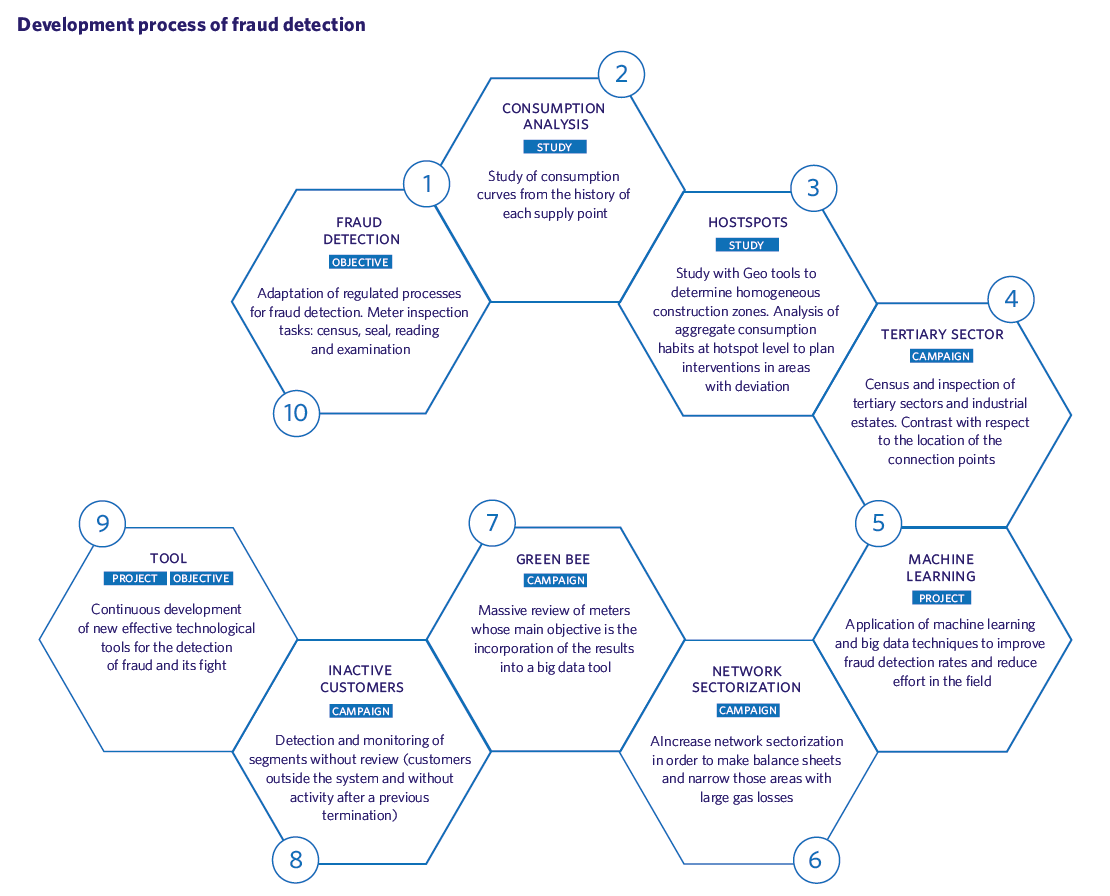
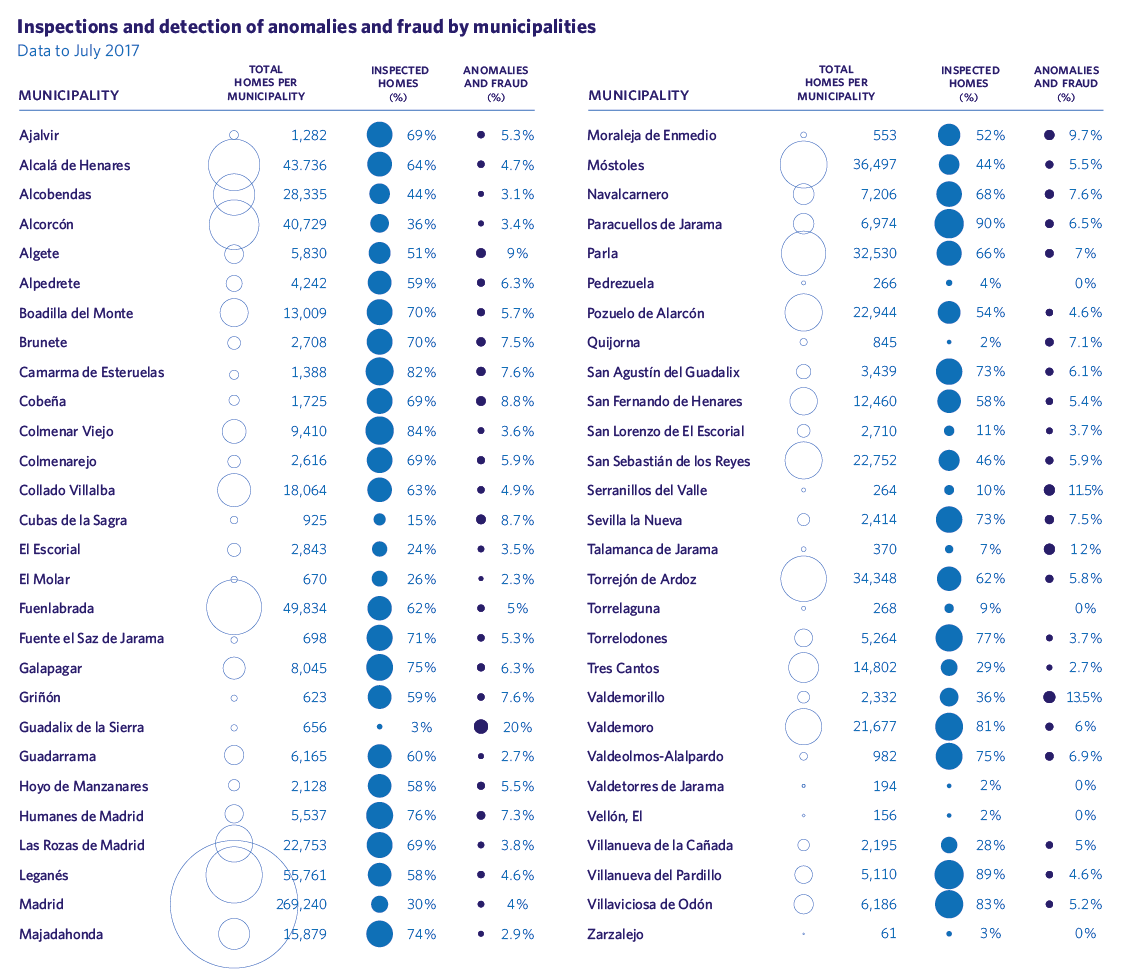
3.4 GREEN BEE PROJECT
Madrileña Red de Gas has committed in recent years to a comprehensive safety monitoring at its facilities and in the detection of fraud within its scope of action.
With the aim of reviewing 100% of our supply points and incorporating preventive and corrective measures against fraud in natural gas installations, in 2016 Green Bee was launched, an ambitious project whose completion is scheduled for 2018.
Green Bee has been a commitment by the company to collecting information that has helped the best implementation of big data and new technologies necessary for the detection of fraud. Among these is machine learning, which enables greater efficiency in detection.
Furthermore, together with Atos Smartgrid, our supplier specialized in services for utilities, we are developing, with a high level of success, MRG-owned algorithms for making proposals for inspection campaigns.
In addition to having substantially improved fraud management and associated detection processes, this initiative has resulted in the achievement of another important objective: the detection and correction of a large number of anomalies in measuring devices. This has had a direct impact on the reduction of network losses, the regulation of dangerous situations for customers, better service and an increase in the company’s turnover.
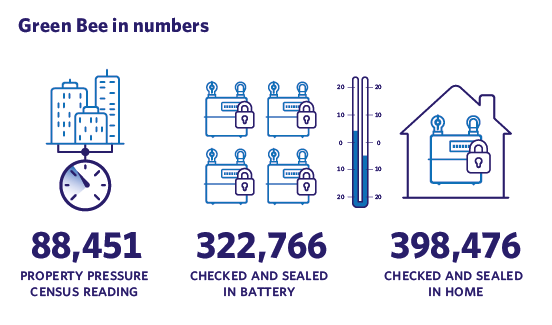
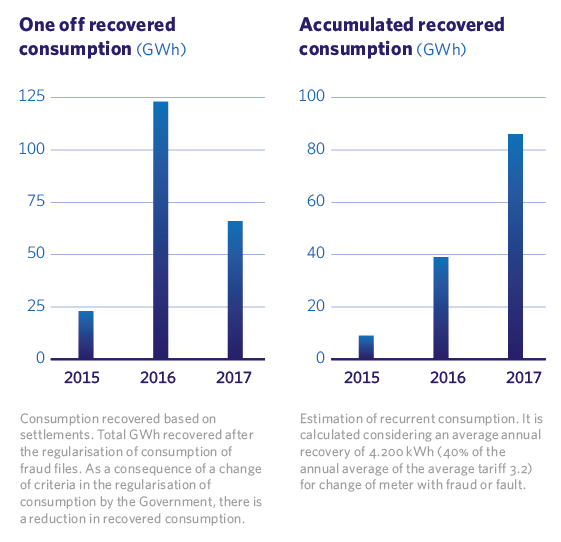
The data reflected in this report correspond to the annual financial year, between July 1, 2016 and June 30, 2017.
